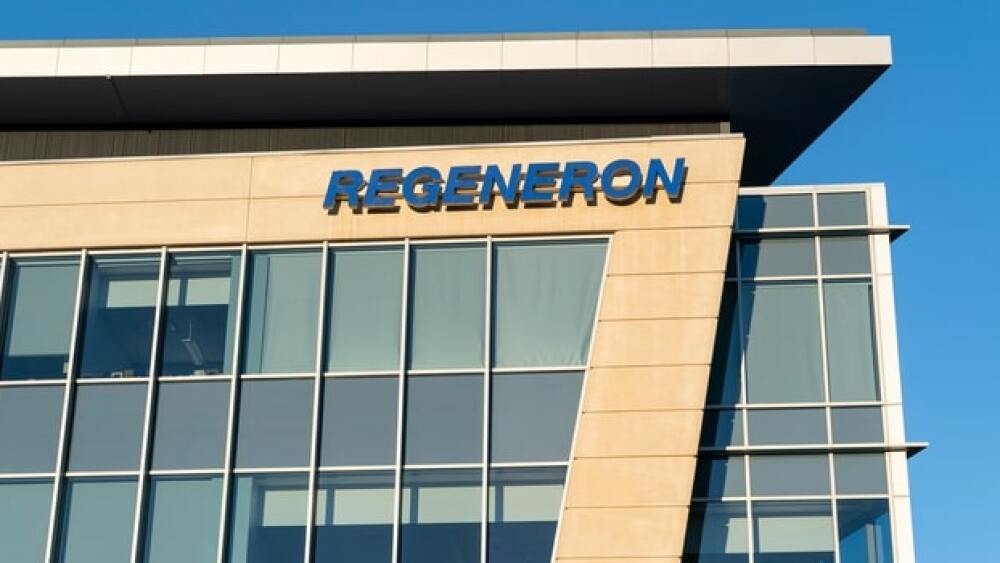Regeneron and CytomX Therapeutics inked a deal valued at up to $2 billion to develop next-generation bispecific immunotherapies for cancer, the companies announced Thursday.
Courtesy of Lev Radin/Getty Images
Regeneron and CytomX Therapeutics have inked a deal valued at up to $2 billion to develop next-generation bispecific immunotherapies for cancer.
Regeneron will pair its Veloci-Bi bispecific antibody development platform with CytomX’s Probody therapeutic platform to develop bispecifics that are expected to become active by proteases in the tumor microenvironment.
Regeneron noted in its announcement this next-generation approach has the potential to both widen the therapeutic window and minimize off-target effects. The approach also has the potential to address tumor types that have historically been unresponsive to immunotherapy, according to the announcement.
John Lin, SVP, Immune Oncology and head of Bispecific R&D at Regeneron, said the company is focused on “developing a paradigm-changing portfolio of oncology medicines” using cutting-edge technologies.
CytomX CEO Sean A. McCarthy told BioSpace the alliance’s goal is to bring bispecific antibodies into the world of solid tumors. The therapeutic window for T-cell-engaging bispecifics is narrow and the partners want to improve upon that, he said. The masking technologies provided by CytomX’s platform enable direct targeting of tumor tissues and reduce toxicity concerns.
McCarthy said the deal with Regeneron, the company’s fifth in oncology and third in bispecific antibodies, showcases the breadth and strength of its platform.
Under the terms of the partnership, CytomX will receive an upfront payment of $30 million. The entirety of the partnership could result in payments of up to $2 billion when research, development, regulatory and sales-based milestones are included.
McCarthy said the partnership was the right deal for the company and provides it with a firmer financial footing following its restructuring earlier this year.
In its third-quarter financial report, CytomX reported $194 million of cash on the balance sheet. That provides the company with financing through 2025, he said.
Beyond the financial aspects of the deal, Regeneron and CytomX will collaborate on the discovery activities to identify and validate conditionally active bispecific antibodies. The Tarrytown, N.Y.-based company will then be responsible for funding preclinical and clinical development and commercialization activities.
The funding comes after CytomX slashed its workforce by 40% in July following a setback with its experimental breast cancer drug.
A Competitive Space
Bispecific antibodies have been popular treatment options as of late. The monoclonal antibodies are able to bind to two different types of antigens in order to activate T-cells to destroy a tumor.
The FDA has approved four bispecific antibodies, with the most recent coming last month. In October, the regulator approved Jannsen’s Tecvayli (teclistamab) for heavily pretreated adult patients with relapsed or refractory multiple myeloma.
Other FDA-approved bispecific antibodies include Amgen’s Blincyto, which has been approved to treat adults and children with B-cell precursor acute lymphoblastic leukemia (ALL) under specific circumstances; Janssen’s Rybrevant for non-small cell lung cancer; and Immunocore’s Kimmtrak (tebentafusp-tebn), approved earlier this year for uveal melanoma.





